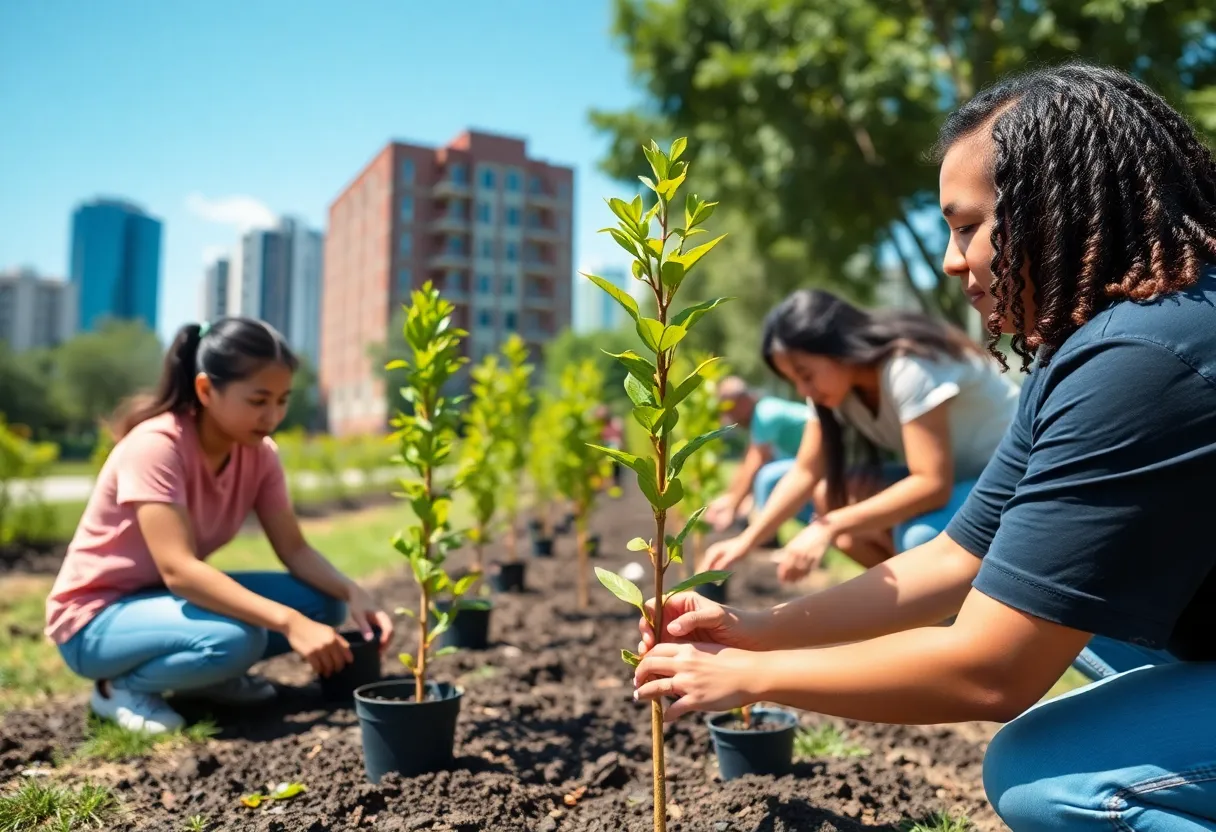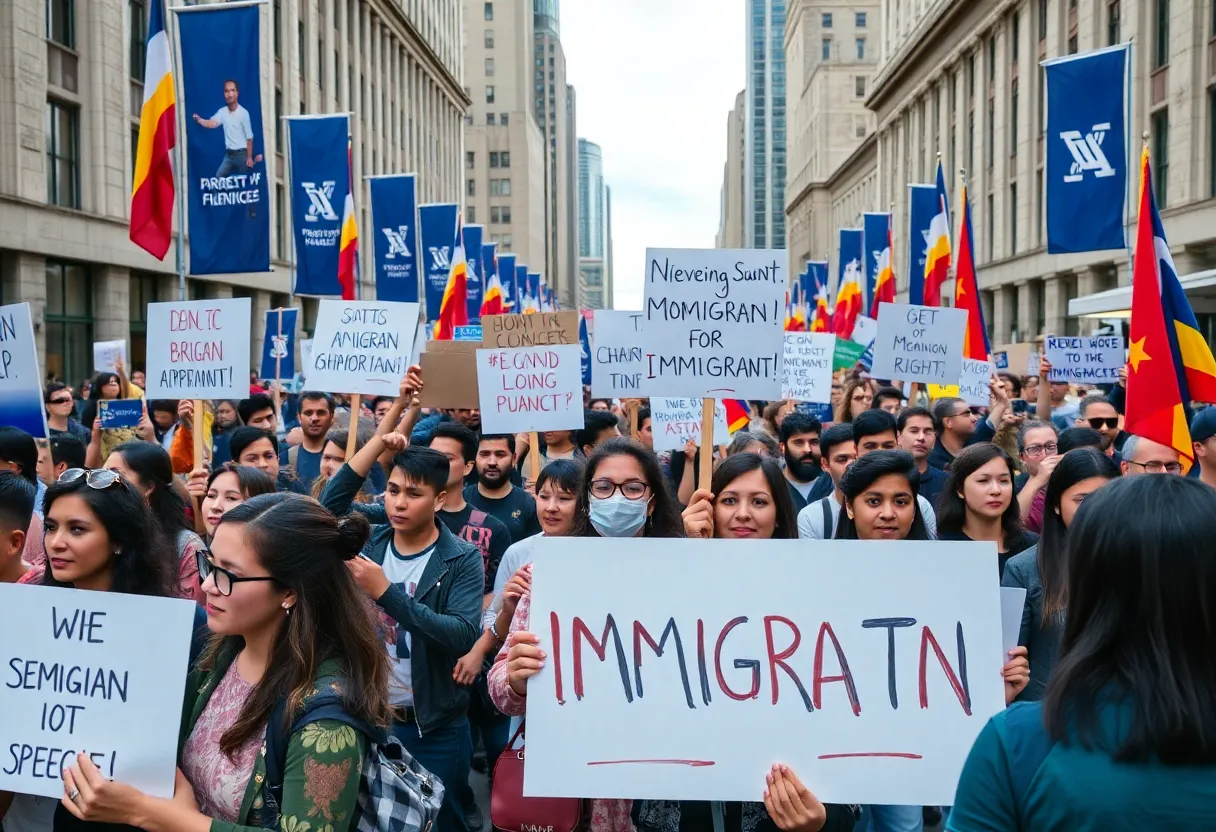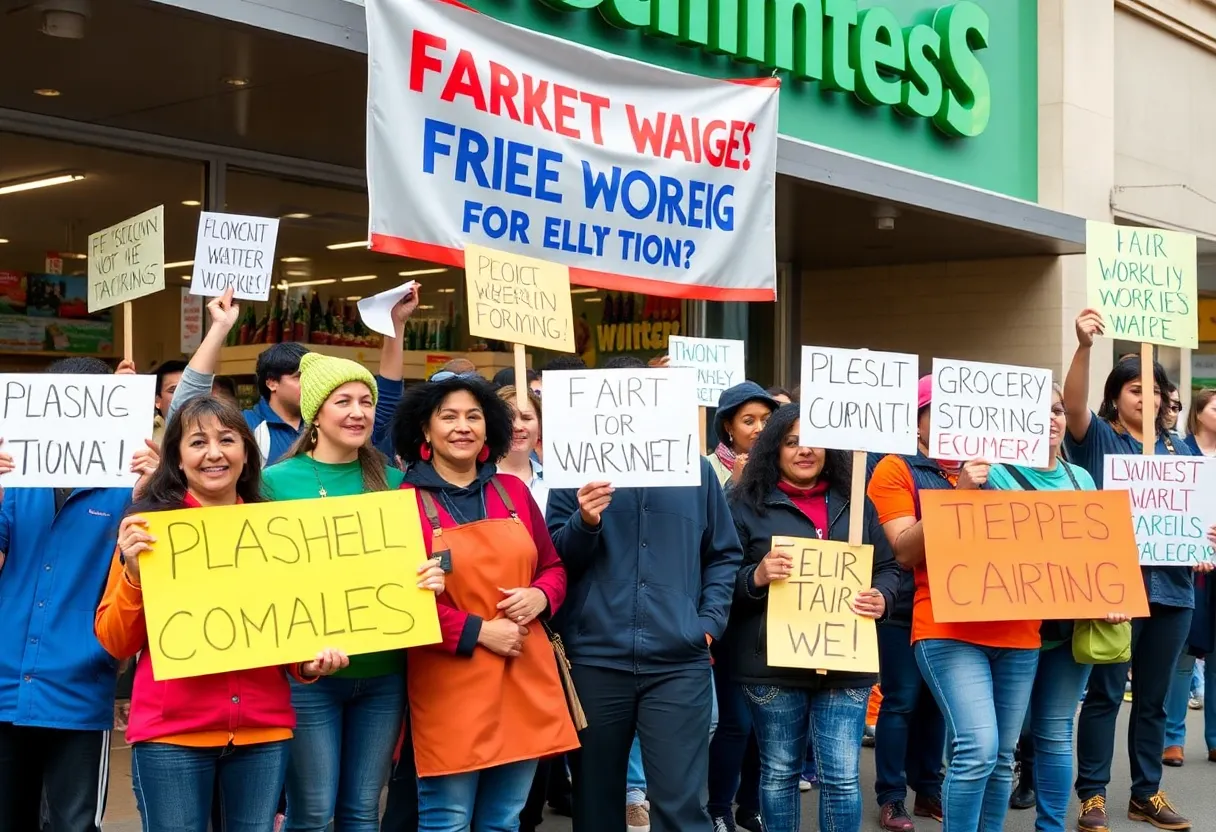News Summary
Houston’s significant tree-planting initiative faces challenges after the cancellation of federal funding aimed at supporting disadvantaged communities. Influenced by changes to diversity and inclusion programs, this decision halts projects that could have planted over 13,000 trees, impacting local organizations like the Alief Super Neighborhood Council, which had secured $250,000 for vital initiatives. The loss of funding underscores broader systemic issues affecting access to green spaces in marginalized neighborhoods, leaving communities in a state of uncertainty regarding their environmental and health needs.
Houston – A significant tree-planting initiative in Houston is facing uncertainty following the abrupt cancellation of federal funding that was designated to support disadvantaged communities. This decision was influenced by a crackdown on diversity, equity, and inclusion (DEI) programs initiated by the Trump administration, which ultimately disrupted the allocation of crucial financial resources.
Four Texas organizations were expected to share a total of $1.55 million in funding that was part of a larger $75 million grant from the Biden administration’s Justice40 initiative. This initiative aimed to bolster communities most in need by enhancing access to green spaces and cooling features such as trees. The Arbor Day Foundation had been assigned the task of distributing these funds to local entities, largely for tree-planting activities in areas suffering from extreme heat. The cancellation now leaves these organizations “in limbo,” stalling their previously planned projects.
As a result of the canceled funding, Texas is estimated to lose approximately 13,335 trees that would have been planted under this initiative. Among the organizations affected is the Alief Super Neighborhood Council, a volunteer-led group focused on combating extreme heat in the Alief community of Houston. They were set to receive $250,000 to support their tree-planting efforts, which is now in jeopardy.
Since October, the Alief group has successfully planted around 1,000 trees to help mitigate the elevated temperatures affecting their community. Research has consistently shown that neighborhoods with fewer trees are considerably hotter compared to shaded areas, with temperature differences reaching up to 14 degrees during the day. The southwest section of Houston, including Alief, stands out as a region with particularly high heat stress indicators, highlighting the urgency of tree-planting initiatives in the area.
Extreme heat has serious health implications, leading to conditions such as dehydration and heat stroke, and can even result in fatalities. In Texas alone, the number of heat-related deaths reported in 2023 reached at least 334, with Harris County documenting 61 such fatalities in 2024. This alarming trend signifies the heightened health risks posed by extreme heat and underscores the importance of effective urban forestry efforts.
When the Alief Super Neighborhood Council learned about the $250,000 grant, they expressed considerable excitement, as it represented the largest funding they had ever received. Prior to the funding cancellation, they had earmarked $151,800 to cover the watering costs necessary for the young trees, especially crucial given the ongoing drought conditions affecting the region.
The landscape in Alief is particularly concerning, with the community boasting only about 11% tree canopy coverage, compared to Houston’s average of 33%. Nationwide, low-income neighborhoods feature around 15.2% fewer trees than wealthier counterparts, while communities of color often have approximately 33% fewer trees compared to majority white communities. This disparity highlights broader systemic challenges faced by marginalized communities concerning access to green spaces.
The Alief Super Neighborhood Council now contends with uncertainty regarding their future tree-planting efforts, without the financial support needed for maintenance and watering. The Arbor Day Foundation’s chief executive has emphasized that these projects were intended to foster community engagement and improve access to green resources within underserved populations.
With growing instances of high temperatures exceeding 100 degrees in recent years, the need to address heat, air quality, and green space availability in urban settings has become increasingly critical. The cancellation of federal funding not only jeopardizes the immediate tree-planting plans but also affects the long-term health and livability of Houston’s most vulnerable communities.
Deeper Dive: News & Info About This Topic
HERE Resources
Additional Resources
- Houston Chronicle
- Wikipedia: Environmental Justice
- Community Impact
- Google Search: tree planting initiatives Houston
- Triple Pundit
- Google Scholar: urban forestry health benefits
- CW39
- Encyclopedia Britannica: Deforestation
- The Leader News
- Google News: urban forestry in Houston








